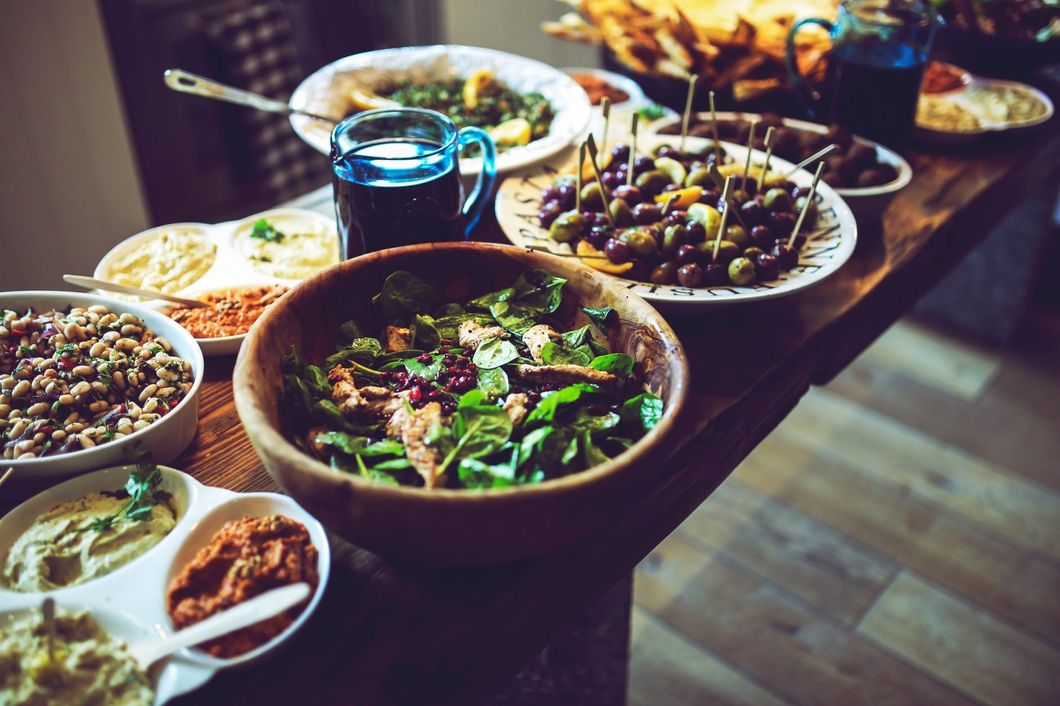The fourth Thursday of November is traditionally painted in colors of family, togetherness, feasting, and football, in the spirit of Americanism and gratitude reminiscent of this idea of Pilgrims and Indians seated around a table amicably carving a turkey. But traditionalism is not always rooted in truth. The "First Thanksgiving" was a lot colder than the American dining room, in temperature and tension.
The idea of a "First Thanksgiving" is rooted in the first officially recorded feast between Pilgrims and the Wampanoag Indians, but Bradford, Plymouth's governor, did not record it as ritual intended to be a family dinner. 50 Pilgrims were all that was left of the 180 who first landed in Plymouth, and as the stench of death filled the air, the newcomers took this time to gather their current harvest and turn to God for the outcome of their future. The surrounding Indian tribes had been known to show up uninvited to the Pilgrims' previous feasts, so whether or not they were even invited to this one remains unclear in primary documents, but records show that on this occasion, the Wampanoag did contribute venison to the table.
This idea of Thanksgiving was largely lost and considered unimportant to the American public until 1863, when Lincoln proclaimed Thanksgiving as a national holiday, in response to editor Sarah Hale's idea to do so. The proclamation was a political ploy intended to unify the North and South amid national tension and death and didn't reference the interaction between Pilgrims and Native Americans. It was a holiday designated for gratitude and request for forgiveness directed towards God.
As Progressivism dominated the 1920s, schools utilized Thanksgiving as a time to unite children in patriotism — the idea that anyone from any nation can be seated at the same table of American citizenship. The theory was that if the students could be taught to embrace the idea of an immigrant's Thanksgiving, the idea would be spread into the family and promote unity. It was during this time that Thanksgiving became primarily more of a secular holiday, rather than a Protestant one. The traditions of family, football, and the Macy's Thanksgiving Day Parade were born in this era, linking the arms of all Americans in a sense of harmony.
With the image of settlers and natives living in reciprocal generosity now embedded in American tradition, postmodernists became enraged with the historical inaccuracy and its potential to minimize injustice towards Native American. On the canvas of educational literature, a new landscape was painted — that of bloodthirsty Europeans with the intent of unprovoked genocide and colonization. Although those were undoubtedly the goals of certain settlers in other regions, they were not the goals of the Pilgrims that inspired Thanksgiving. In the records provided by Pilgrim founding father William Bradford, he stressed that the Pilgrims had no intentions of colonization, or even force-fed evangelism like the Puritans, as other postmodernist historians would purport. The Pilgrims were too rattled with death and too focused on their own survival to provoke war with neighboring tribes.
Attention should be and has been drawn to the injustice done towards Native Americans. American citizens benefitting from a nation of prosperity must recognize that said prosperity often came at the involuntary cost of others. The Thanksgiving holiday does not need to be secure only in the idea that all Indians and all original settlers were bosom buddies seated around a dining room table. Angst derived from injustice does not need to tear down a holiday founded in gratitude.
Thanksgiving should be celebrated for its current spirit while staying cognizant of its true historical context. We cannot change the past, but we can learn from it to better our future. Regardless of past grievances, there is always something to be thankful for; but because of past grievances, there are always lessons to be learned. Whether or not this year's November 24th is a day spent at your table surrounded by loved ones and the smell of marinades and bread, choose thankfulness.












